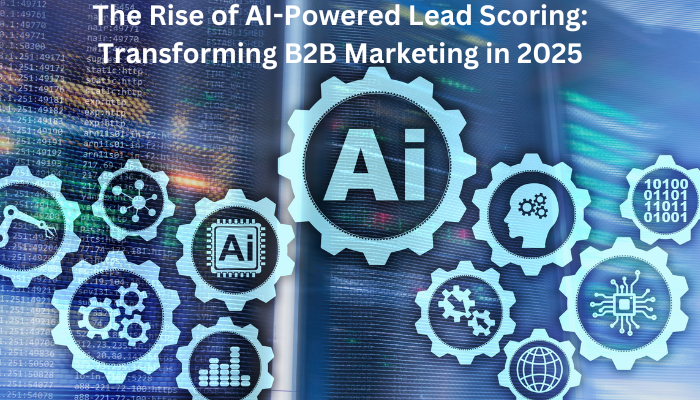
The Rise of AI-Powered Lead Scoring: Transforming B2B Marketing in 2025
May 30, 2025 0 comment
As B2B marketing continues to evolve, the integration of Artificial Intelligence (AI) into lead scoring processes is revolutionizing how businesses identify and prioritize potential customers. In 2025, AI-powered lead scoring has become a critical tool for marketers aiming to enhance efficiency and drive conversions.
Understanding AI-Powered Lead Scoring
Traditional lead scoring methods often rely on static criteria, such as job title or company size, to evaluate prospects. However, these methods can be limited in accuracy and adaptability. AI-powered lead scoring utilizes machine learning algorithms to analyze vast amounts of data, including behavioral patterns, engagement history, and demographic information, to assign dynamic scores to leads.
By continuously learning from new data, AI systems can more accurately predict a lead’s likelihood to convert, allowing sales teams to focus their efforts on the most promising prospects.
Benefits of AI-Powered Lead Scoring
- Enhanced Accuracy: AI algorithms can process complex datasets to identify patterns that may not be apparent through manual analysis, leading to more precise lead scoring.
- Real-Time Updates: As new data becomes available, AI systems can adjust lead scores in real-time, ensuring that sales teams have the most current information.
- Improved Efficiency: By automating the lead scoring process, businesses can reduce the time and resources spent on manual evaluations, allowing teams to allocate efforts more strategically.
- Personalized Engagement: With deeper insights into lead behavior and preferences, marketers can tailor their outreach strategies to better resonate with individual prospects.
Implementing AI-Powered Lead Scoring
To successfully integrate AI into lead scoring processes, businesses should consider the following steps:
- Data Collection: Ensure that your organization is capturing comprehensive and high-quality data across all customer touchpoints.
- Choose the Right Tools: Select AI platforms or software that align with your business needs and can seamlessly integrate with existing CRM systems.
- Define Clear Objectives: Establish specific goals for your AI-powered lead scoring initiatives, such as increasing conversion rates or improving sales cycle efficiency.
- Continuous Monitoring and Optimization: Regularly assess the performance of your AI models and make necessary adjustments to maintain accuracy and relevance.
Challenges and Considerations
While AI-powered lead scoring offers numerous advantages, businesses should be mindful of potential challenges:
- Data Privacy: Ensure compliance with data protection regulations by implementing robust security measures and obtaining necessary consents.
- Bias and Fairness: Be vigilant about potential biases in AI algorithms that could lead to unfair lead evaluations. Regular audits and diverse data inputs can help mitigate this risk.
- Integration Complexity: Integrating AI systems with existing infrastructure may require significant resources and expertise.
The Future of Lead Scoring
As AI technology continues to advance, we can anticipate even more sophisticated lead scoring capabilities, such as predictive analytics that forecast long-term customer value or AI-driven recommendations for personalized content delivery.
By embracing AI-powered lead scoring, B2B marketers can stay ahead of the competition, optimize their sales processes, and ultimately drive greater business growth.